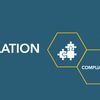Prohibited Transaction Exemptions
How Prohibited Transactions Relate to Association Health Plans

In the interests of protecting an association health plan from abuse, there are rules regarding what type of transactions are allowed and prohibited for an association health plan.
Prohibited Transactions
The main regulation governing association health plans, ERISA, prohibits certain transactions involving association plans and a “party-in-interest.” A party-in-interest includes any fiduciary within an association health plan. A party-in-interest also includes related entities such as affiliates of a fiduciary as well as association member employers. The prohibition seeks to prevent self-serving transactions that work in the interests of an employer or affiliate rather than the plan and its participants.
In practice, this means that a fiduciary cannot hire one of the employers within the association to provide a service to the association health plan. The same prohibition extends to any affiliates of the employers belonging to the association.
Allowed Service Arrangements
Association plans are allowed to engage third parties to provide services to the health plan so long as those services are necessary for the operation of the plan. The arrangement for the services as well as the compensation for the services must be reasonable. However, as discussed above, the services cannot be provided by a member of the association or the member’s affiliate.
Prohibited Transaction Exemptions (PTEs)
There are, under specific conditions, exemptions for the prohibited transaction rule. Specifically, the Department of Labor can grant administrative exemptions from the prohibited transaction provisions of ERISA, but in order to grant an administrative exemption, the exemption must be determined to be:
(1) Administratively feasible
(2) In the interest of the plan, its participants, and its beneficiaries
(3) Maintaining and protecting of the rights of both plan participants and plan beneficiaries
The Department has clarified the narrow circumstances under which they would consider exempting an affiliate of an association member from the prohibition: “This “service provider” exemption does not [emphasis added] cover a fiduciary hiring an affiliate or related person or company to provide services to the AHP — called self-dealing or a “conflict of interest” prohibited transaction. There is a separate statutory exemption for this “conflict of interest” transaction but, in addition to the conditions required by the “service provider” exemption, the affiliate (or related person or company) can be paid only for its direct expenses (not normal fees) incurred when providing services [emphasis added]. Fiduciaries of AHPs can apply to the Department for an administrative exemption if they want to hire affiliates or related persons or companies and charge normal fees, but the application would have to prove the arrangement was in the interest of and protective of the plan and its participants and beneficiaries.”
Before an exemption may be granted, the Department of Labor must publish in the Federal Register a notice of the proposed exemption. This publication provides interested parties the opportunity to respond to the proposal. If the exemption proposal addresses potential fiduciary self-dealing or other potential conflict of interest, a public hearing opportunity must also be provided.





